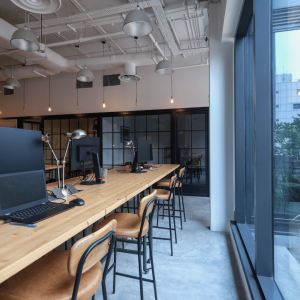Top 11 Co-Working Space Trends in Bangalore 2026: The Future of Flexible Workspaces
Top 11 Co-Working Space Trends in Bangalore 2026: The Future of Flexible Workspaces
Meta Description: Discover the top co-working space trends in Bangalore for 2026. Learn how co-working spaces in Bangalore are evolving with hybrid work models, AI-powered offices, sustainability, and enterprise solutions.
The Future of Co-Working Space in Bangalore in 2026
The co-working space in Bangalore market is no longer a niche trend — it has become a powerful force reshaping how startups, IT companies, freelancers, and enterprises operate. As we move into 2026, the demand for co-working spaces in Bangalore continues to rise due to hybrid work culture, rising commercial rents, and the city’s booming startup ecosystem.
Bangalore, known as India’s Silicon Valley, is leading the transformation of flexible workspaces. From Koramangala and Indiranagar to Whitefield and HSR Layout, co-working space in Bangalore is evolving rapidly to meet the needs of modern businesses.
Here are the top co-working space trends in Bangalore for 2026 that will define the future of work.
1. Hybrid Work-Centric Co-Working Space in Bangalore
Hybrid work is now permanent across Bangalore’s tech parks and startup hubs. Companies are increasingly choosing co-working spaces in Bangalore to support distributed teams without committing to long-term office leases.
Co-working operators in Bangalore now offer:
-
Hybrid membership plans
-
Flexible day passes
-
On-demand desk booking
-
Custom packages for IT and startup teams
A flexible co-working space in Bangalore allows companies to scale operations efficiently while reducing overhead costs.
2. Growth of Suburban Co-Working Spaces in Bangalore
Traffic congestion and high rental costs in central Bangalore are driving growth in suburban co-working spaces in Bangalore.
Areas like Whitefield, Electronic City, Sarjapur Road, and Hebbal are witnessing strong demand for premium yet affordable co-working space in Bangalore. Professionals prefer working closer to home, while businesses benefit from cost-effective expansion in emerging micro-markets.
This decentralized co-working space in Bangalore trend is reshaping commercial real estate in the city.
3. AI-Powered Co-Working Space Management in Bangalore
Technology adoption is accelerating in co-working spaces in Bangalore. In 2026, AI-powered systems are helping operators optimize:
-
Smart space allocation
-
Automated meeting room booking
-
Occupancy tracking
-
Energy management
-
Member experience personalization
AI-driven co-working space in Bangalore solutions improve operational efficiency while enhancing the overall member experience.
4. Wellness-Focused Co-Working Spaces in Bangalore
Employee wellness is becoming a major focus in Bangalore’s corporate culture. Modern co-working spaces in Bangalore now include:
-
Biophilic office designs
-
Ergonomic workstations
-
Meditation and relaxation pods
-
Fitness and wellness zones
-
Green-certified sustainable buildings
A wellness-oriented co-working space in Bangalore not only boosts productivity but also supports work-life balance for professionals.
5. Industry-Specific Co-Working Space in Bangalore
Bangalore’s diverse economy is driving demand for niche co-working spaces in Bangalore tailored to specific industries such as:
-
IT and SaaS startups
-
Fintech companies
-
Creative agencies
-
Legal professionals
-
Digital marketing firms
An industry-focused co-working space in Bangalore fosters stronger networking, collaboration, and access to specialized infrastructure.
6. Flexible Lease and Pay-As-You-Use Co-Working Space in Bangalore
With economic uncertainty and rapid business changes, companies prefer flexible lease structures. Co-working spaces in Bangalore now offer:
-
Short-term rental agreements
-
Pay-per-day desks
-
Monthly memberships
-
Scalable private office cabins
This flexibility makes co-working space in Bangalore an attractive alternative to traditional office rentals.
7. Rising Demand for Virtual Office in Bangalore
The demand for virtual office in Bangalore is increasing as startups and solopreneurs seek professional business addresses without maintaining physical offices.
A virtual office in Bangalore typically includes:
-
Premium business address
-
Mail handling and forwarding
-
Meeting room access
-
Call answering services
Many businesses combine virtual office in Bangalore services with part-time co-working space in Bangalore access for maximum flexibility.
8. Community-Driven Co-Working Spaces in Bangalore
A strong professional community is a major advantage of choosing a co-working space in Bangalore. Operators organize:
-
Startup networking events
-
Tech meetups
-
Founder roundtables
-
Skill development workshops
-
Investor pitch sessions
Community-driven co-working spaces in Bangalore help businesses grow through collaboration and strategic partnerships.
9. Enterprise and Managed Office Solutions in Bangalore
Large IT firms and multinational corporations are increasingly adopting enterprise-level co-working space in Bangalore.
Managed office solutions offer:
-
Custom-branded private offices
-
Dedicated secure work areas
-
Operational and IT support
-
Satellite office flexibility
Enterprise co-working space in Bangalore combines agility with corporate-level infrastructure.
10. Workation and Co-Living Integration in Bangalore
With remote work culture expanding, professionals are exploring flexible lifestyle-driven work models. Some co-working spaces in Bangalore are integrating workation concepts and collaborative living environments.
This innovative co-working space in Bangalore model blends productivity with lifestyle and flexibility.
11. Smart and Sustainable Co-Working Space in Bangalore
Sustainability is a key trend shaping co-working space in Bangalore in 2026. Operators are adopting:
-
Energy-efficient lighting systems
-
Smart access control
-
IoT-enabled infrastructure
-
Waste reduction initiatives
An eco-friendly co-working space in Bangalore aligns with ESG goals and modern corporate sustainability standards.
Final Thoughts on Co-Working Space in Bangalore in 2026
The co-working space in Bangalore market is becoming more technology-driven, flexible, and community-focused than ever before. With hybrid work, AI integration, sustainability, and enterprise adoption accelerating, Bangalore is leading India’s flexible workspace revolution.
Whether you are a freelancer, startup founder, SME owner, or enterprise leader, choosing the right co-working space in Bangalore can significantly enhance productivity, scalability, and brand credibility.
If you are planning to expand or establish your presence in Bangalore, investing in a premium co-working space in Bangalore in 2026 is a smart and future-ready decision.




